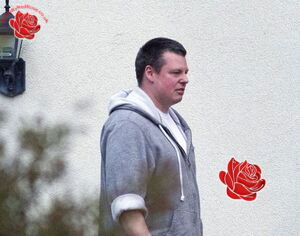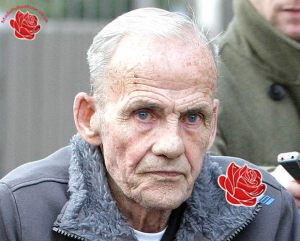Stephen Murray's Social Media Accounts
Know a Social Media Account Linked to Stephen Murray?
Want to add information? Log in to your account to contribute accounts and phone numbers.
STEPHEN MURRAY FROM CO WICKLOW SENTENCED FOR ABUSE IN FOSTER HOME
In May 2022, a disturbing case of long-term sexual abuse involving a foster father from Co Wicklow came to light, revealing the horrific extent of his crimes against his foster daughter. The man, identified as Stephen Murray, aged 56, of Humphreystown, Valleymount, was found guilty of multiple charges related to the sexual exploitation of the young girl he was entrusted to care for.Kelly Kemmy, now 24 years old, courageously chose to waive her anonymity and publicly name her abuser. She recounted to the Central Criminal Court that she was subjected to over 1,000 instances of rape from the age of 11 until she reached 18. Her testimony painted a harrowing picture of systematic abuse, which she described as a life-altering ordeal. Kemmy emphasized her resilience, stating that she stands before the court as a survivor and is determined not to let her traumatic past define her future.
Stephen Murray pleaded guilty to 14 counts of rape, two counts of oral rape, and one count of sexual assault, all committed between February 2009 and December 2015. The court heard that these offenses occurred during a period when Murray was supposed to be providing a safe and nurturing environment for the girl and her two siblings. The victim’s impact statement was read aloud during the initial sentencing hearing, revealing the profound psychological and emotional scars left by Murray’s actions.
Judge Paul McDermott expressed his outrage at the betrayal of trust by Murray and his wife, who had been responsible for the care of the girl and her siblings. The judge highlighted the deceitful nature of Murray’s conduct, noting that he had kept his abusive actions hidden from his wife throughout the years. The court acknowledged the severe psychological trauma inflicted upon Kemmy, including physical pain and emotional suffering, which continue to affect her to this day.
In his remarks, Judge McDermott pointed out that the abuse took place in the girl’s own bedroom, a place that should have been a sanctuary. The court described how Murray instilled terror, fear, and isolation in his victim, often abusing her when her family was asleep in the house. The judge also noted that Murray’s empathy for the girl only surfaced recently, implying a lack of remorse during the period of abuse. Despite her pleas for him to stop, Murray persisted, demonstrating a disturbing pattern of predatory behavior.
The sentencing reflected the gravity of the crimes. Murray was sentenced to seven years in prison for sexual assault and twelve years for the rape charges. The court considered mitigating factors, including Murray’s early guilty plea, his expressions of remorse, his work history, and his cooperation with probation services. As a result, the judge suspended the final twelve months of his sentence, provided Murray maintained good behavior and adhered to probation conditions. Both sentences are to run concurrently.
Prosecutor Anne Rowland SC explained that the charges were representative of a pattern of abuse, with the victim revealing that she was raped multiple times weekly, sometimes up to five times. She emphasized that even a minimum estimate of four times per week over seven years would amount to over 1,000 incidents. The Director of Public Prosecutions (DPP) classified this case as exceptional due to the vulnerability of the victim, the breach of trust, the frequency of the abuse, and its long-lasting impact. The DPP recommended a sentence ranging from 15 years to life imprisonment.
The court was told that the abuse began with Murray asking the girl to lie on him as a form of comfort, which escalated over time. The girl recounted that her foster father would enter her bedroom at night, often when her family was asleep, and commit acts of sexual assault. She described a particularly distressing incident during her younger sister’s communion, where Murray followed her into her room after she had a headache, attempting to touch her. She managed to push him away, and he left the room.
The victim disclosed the abuse to Gardaí in 2019 after a concerning text message from Murray, in which he asked, “could we go again?” She interpreted this as a request for further sexual contact. Although Murray had not raped her for several years, her fears prompted her to confide in her siblings, her boyfriend, and eventually the Gardaí. He was arrested in December 2019 but made no comment during police interviews. His wife later confirmed to Gardaí that Murray had admitted to her that he had raped their foster daughter.
The impact of the abuse on Kemmy was profound. Her victim impact statement detailed her ongoing struggles, describing her feelings of shame, confusion, and alienation. She expressed that the abuse felt like a life sentence, leaving her with a shattered sense of identity and deep emotional scars. She recounted how she had missed out on a normal childhood, with her life turning into a nightmare. Her account revealed that she had endured years of numbness, depression, and a lack of self-worth, often just surviving rather than truly living.
Addressing Murray directly, Kemmy described how he used her small body for his sexual gratification, making her feel excruciating pain and confusion. She explained that she was too frightened to report the abuse earlier, fearing for her younger siblings’ safety. Her decision to disclose came only when she was 21, after years of suffering in silence. Her statement concluded with a declaration of her resilience and her commitment to start living her life free from the shadow of her past.
Defense counsel Ronan Munro SC acknowledged Murray’s remorse and his efforts to seek counseling. Munro noted that Murray’s personal and professional life had been destroyed by the allegations, and he now lives as a recluse, drinking to cope with his shame. The lawyer urged the court to consider Murray’s guilty plea, which spared the victim the trauma of a trial, and his mental health issues. Munro emphasized that Murray had not made any admissions during police interviews but had pleaded guilty, demonstrating some level of remorse.
The case underscores the devastating impact of betrayal by a trusted caregiver and highlights the importance of justice for victims of such heinous crimes. The court’s decision reflects the severity of the offenses and the need to protect vulnerable individuals from similar abuse in the future.








